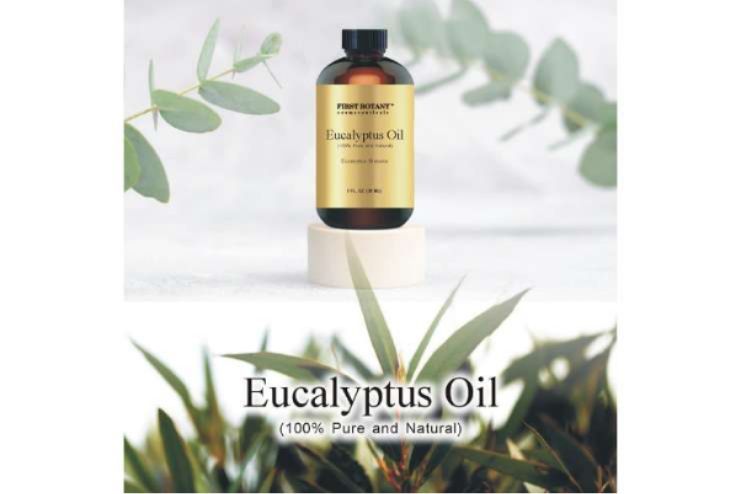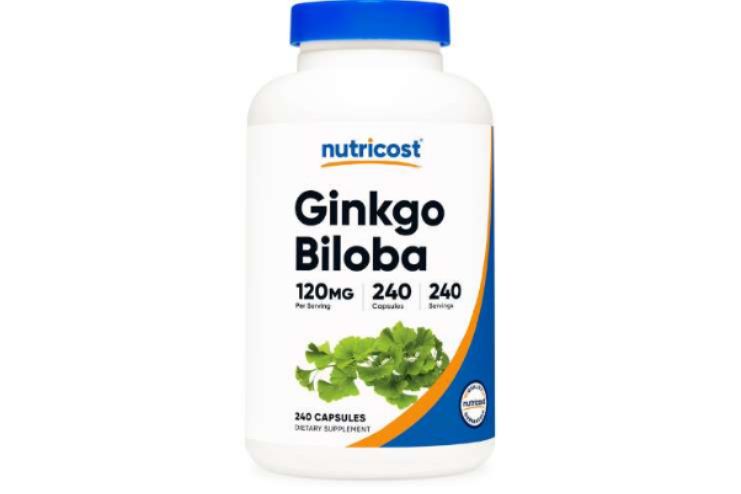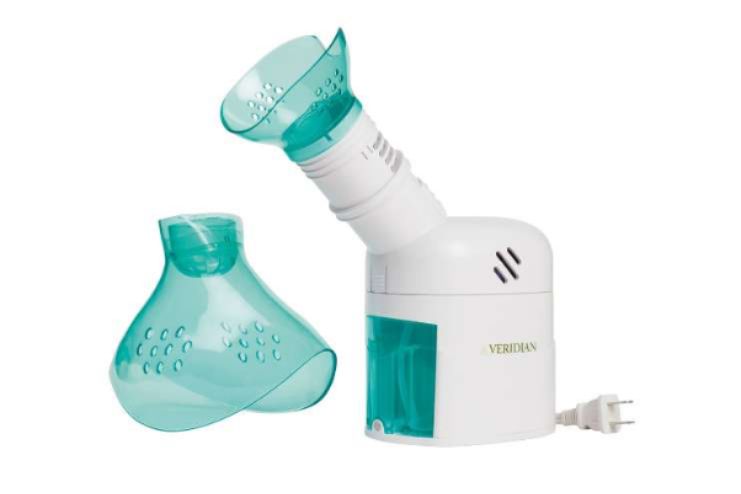The loss of taste and smell—medically known as anosmia—can be both confusing and distressing. These senses play vital roles in our everyday lives, from helping us detect danger through smell to enhancing the enjoyment of our favorite meals.
In this article, we’ll explore the fascinating science behind taste and smell, and take a closer look at the many factors that can lead to their loss.
Why Taste and Smell Matter
Taste and smell are far more than simple senses—they’re deeply woven into how we experience the world. Taste helps shape our food preferences and supports good nutrition, while smell is critical for detecting hazards like spoiled food, gas leaks, or smoke.
But the importance of these senses goes even further. The scent of a favorite meal can spark cherished memories, and sharing food can strengthen social bonds. Together, taste and smell enrich our emotional well-being, create a sense of connection, and elevate the overall quality of life. In many ways, they open the door to a richer, more meaningful experience of the world around us.
Read More: 10 Ways To Revive Your Taste Buds
In this Article
Lifestyle Changes to Support Sensory Restoration
Regaining lost taste and smell often involves more than just time—it can also benefit from thoughtful lifestyle adjustments that support overall health and sensory recovery.
One of the most important steps is maintaining a nutritious, well-balanced diet. Foods rich in antioxidants, zinc, and vitamin A play a key role in supporting the health of taste buds and olfactory receptors. These nutrients help reduce inflammation and promote cellular repair, which may aid in restoring sensory function.
Regular physical activity is another powerful tool. Exercise boosts circulation, supports immune health, and enhances overall well-being—all of which may contribute to the gradual return of taste and smell.
Good oral hygiene is also essential. Brushing and flossing regularly helps prevent infections and inflammation in the mouth that can interfere with taste perception.
It’s equally important to limit exposure to environmental irritants, such as cigarette smoke and harsh chemicals. These substances can damage the delicate tissues involved in taste and smell, potentially slowing recovery.
Lastly, managing stress through relaxation techniques like yoga, meditation, or deep breathing can promote the body’s natural healing processes. Stress can negatively affect many bodily systems, including those related to sensory function.
By making these mindful lifestyle changes, individuals can help create an optimal environment for sensory recovery—and rediscover the richness of a flavorful, aromatic life.
Now let’s review some natural remedies that can help recover the lost sense of smell and taste.
14 Natural Remedies to Restore Taste and Smell
Remedy 1: Zinc-Rich Foods

Zinc is a vital mineral that supports overall health and plays a particularly important role in maintaining the function of your taste buds and smell receptors. Found in a variety of foods, including oysters, beef, and pumpkin seeds, zinc contributes to the repair and regeneration of the cells involved in taste and smell.
Oysters, often celebrated as one of the richest natural sources of zinc, offer a flavorful way to support sensory health. Their impressive zinc content can aid in the regeneration of taste bud cells and help enhance olfactory sensitivity.
Lean cuts of beef also deliver a substantial amount of zinc, making them a solid choice for those looking to support their sensory systems through diet. For plant-based or more flexible options, pumpkin and hemp seeds are excellent sources as well. These mineral-rich seeds are versatile, easy to incorporate into meals, and can help nourish both taste and smell receptors.
By including more zinc-rich foods in your diet, you’re not only supporting your overall health—you’re also giving your sensory system the nutrients it needs to thrive, potentially paving the way for a more vivid and enjoyable sensory experience.
Remedy 2: Vitamin A

Vitamin A plays a critical role in maintaining healthy mucous membranes, especially in the nose and mouth—key areas involved in your sense of taste and smell. By keeping these tissues strong and resilient, vitamin A supports proper sensory function and helps protect against irritants and infections.
This essential vitamin is found in a variety of vibrant, nourishing foods. Carrots, for example, are not only crisp and flavorful but also packed with beta-carotene, a precursor to vitamin A. Regularly including carrots in your meals can help shield the delicate tissues that support your sensory health.
Sweet potatoes are another standout source. Their rich orange flesh signals high vitamin A content, and their naturally sweet, earthy flavor makes them a satisfying and nutrient-dense addition to any sensory-supportive diet. They help maintain the integrity of nasal and oral tissues—crucial for detecting taste and scent.
Leafy greens like spinach offer a plant-powered boost of vitamin A, along with an array of other minerals. Adding spinach to salads, soups, or smoothies can reinforce your body’s defenses against environmental stress and support the health of your sensory organs.
Dairy products like butter, goat cheese, and cheddar cheese also contribute meaningful amounts of vitamin A. When enjoyed in moderation, they can be part of a well-rounded strategy to nourish the systems behind your sense of smell and taste.
By consistently including vitamin A-rich foods in your diet, you support the health of your sensory pathways—helping to preserve, restore, and enjoy the full range of flavors and aromas life has to offer.
Read More: 10 Effective Ways To Treat Tongue Problems
Remedy 3: Antioxidant-Rich Fruits

Oxidative stress can damage the cells responsible for taste and smell, potentially dulling these vital senses. Fortunately, antioxidant-rich fruits offer a delicious and natural way to combat this damage and support sensory restoration.
Fruits like berries, oranges, and kiwi are packed with powerful compounds—such as polyphenols, flavonoids, and vitamins C and E—that neutralize free radicals and help protect delicate sensory tissues.
Berries, celebrated for their vibrant colors and bold flavors, are antioxidant powerhouses. Blueberries, strawberries, raspberries, and blackberries all contain a rich blend of polyphenols and flavonoids that help reduce inflammation and cellular damage—making them a flavorful ally in preserving taste and smell.
Oranges, with their zesty citrus aroma and juicy sweetness, are loaded with vitamin C and bioflavonoids. These nutrients support immune health and act as potent antioxidants, shielding sensory pathways from oxidative harm and helping maintain sensory clarity.
Kiwis, with their striking green color and refreshing tang, are another nutrient-dense choice. Packed with vitamins C and E, kiwis help strengthen your body’s defense systems and promote healthier cells in the nose and mouth.
Incorporating a variety of antioxidant-rich fruits into your diet does more than please the palate—it nourishes and protects the senses that help you experience the richness of the world around you. Each bite brings you closer to a more vibrant, flavorful life.
Remedy 4: Eucalyptus Oil

Harnessing the power of nature, eucalyptus oil may support the restoration of your sense of smell—especially when congestion or inflammation is getting in the way. Known for its refreshing aroma and medicinal properties, eucalyptus oil offers both physical and sensory benefits.
At the heart of eucalyptus oil’s effectiveness is cineole, a natural compound with powerful decongestant and anti-inflammatory effects. When inhaled—particularly through steam—eucalyptus oil can help clear blocked nasal passages, reduce mucus buildup, and promote easier breathing. This improved airflow can create the right conditions for your olfactory system to recover.
The invigorating scent of eucalyptus oil also stimulates the senses, potentially enhancing scent awareness and helping reawaken a dulled sense of smell. Whether used in a diffuser, added to a bowl of steaming water, or included in a warm bath, eucalyptus oil offers a simple and natural way to support nasal health and encourage sensory regeneration.
More than just a remedy for congestion, eucalyptus oil brings a sense of renewal. Its clean, uplifting scent not only soothes the body but also offers a hopeful path toward reconnecting with the scents of the world around you.
Remedy 5: Lemon Essential Oil

When it comes to natural therapies for restoring sensory balance, lemon essential oil stands out as a vibrant and uplifting choice. Known for its zesty, invigorating aroma, lemon oil has the power to awaken the senses and support heightened awareness of both taste and smell.
The fresh citrus scent of lemon essential oil is particularly effective at stimulating olfactory receptors—the sensory cells responsible for detecting and processing scents. As its lively aroma fills the air, these receptors are gently activated, helping reawaken the sense of smell and enhance overall sensory perception.
In addition to its physical effects, lemon essential oil can also uplift the mind and mood. Its bright, cheerful fragrance promotes mental clarity, energy, and positivity, creating a sense of freshness that can indirectly enhance flavor perception as well. This stimulation of the senses may help heighten taste awareness, allowing for a more vivid and enjoyable experience of food.
Whether diffused throughout your space, inhaled directly, or applied topically with proper dilution, incorporating lemon essential oil into your daily routine is a delightful way to support sensory health. With its naturally energizing properties and ability to enliven the senses, lemon essential oil offers a gentle, aromatic path to rejuvenating your sense of taste and smell.
Remedy 6: Rosemary Oil

Rosemary essential oil is more than just a fragrant herb—it’s a sensory powerhouse with benefits that extend beyond its aromatic appeal. In the realm of natural therapies, rosemary oil has gained recognition for its ability to stimulate the senses, enhance cognitive function, and potentially support the restoration of taste and smell.
When inhaled, the invigorating compounds in rosemary oil activate the olfactory system, helping to sharpen sensory perception. This stimulation can lead to improved clarity in both smell and taste, as the brain becomes more attuned to recognizing and processing sensory input.
Research suggests that inhaling rosemary oil may enhance memory recall and cognitive performance. By supporting mental clarity and focus, rosemary oil indirectly contributes to sensory restoration—since taste and smell are closely linked to brain processing and awareness.
Whether diffused in your home, added to a steam inhalation, or used in a diluted topical blend, incorporating rosemary oil into your daily routine can help awaken both the mind and the senses. With its crisp, herbaceous aroma and brain-boosting properties, rosemary oil offers a natural, supportive approach to enhancing sensory and cognitive wellness.
Buy Rosemary Essential Oil on Amazon
Remedy 7: Ginkgo Biloba

Among the many herbal remedies known for promoting wellness, Ginkgo biloba stands out as a time-honored botanical with promising benefits for sensory function. Widely used for its potential to enhance circulation and protect brain health, Ginkgo biloba may also play a role in restoring and supporting taste and smell.
This revered herb is believed to improve blood flow throughout the body—including to the brain and sensory organs—thanks to its vasodilatory properties. By enhancing circulation, Ginkgo biloba may help deliver more oxygen and vital nutrients to areas involved in taste and smell perception, supporting their function and resilience.
In addition to its circulation-boosting effects, Ginkgo biloba is rich in antioxidants. These compounds help neutralize free radicals and protect delicate sensory receptors from oxidative stress and environmental damage. This antioxidant defense may be particularly valuable in preserving sensory sharpness as we age.
Available in various forms such as teas, tinctures, and capsules, Ginkgo biloba offers a gentle, plant-based option for those seeking to revitalize their senses naturally. Whether you’re looking to improve your sensory awareness or simply maintain sensory well-being, Ginkgo biloba can be a supportive addition to your wellness routine—helping you reconnect more vividly with the world around you.
Remedy 8: Ginseng

Ginseng is a revered herb with a long tradition of use in natural medicine—and it may offer valuable support for sensory health. Best known for its adaptogenic properties, ginseng helps the body respond to stress more effectively, promoting balance and resilience in the face of both physical and emotional challenges.
Stress can have a direct impact on the senses, often dulling taste and smell perception. By helping to regulate the body’s stress response, ginseng may indirectly support the restoration and enhancement of these vital senses. As stress levels stabilize, sensory clarity often returns, making flavors and aromas feel more vivid and enjoyable.
Beyond stress relief, ginseng also supports overall homeostasis—the body’s internal equilibrium. This broader adaptogenic action can promote optimal function across various systems, including those involved in sensory perception.
Whether enjoyed as a tea, incorporated into cooking, or taken as a supplement, ginseng offers a gentle, holistic way to enhance sensory well-being. Its ability to support both the mind and body makes it a valuable ally in the journey toward a more balanced and enriched sensory experience.
Remedy 9: Green Tea

Green tea, a cherished beverage, offers numerous sensory benefits alongside its well-known health properties. Packed with antioxidants, it supports overall well-being, including the health of your taste and smell senses. The key to green tea’s antioxidant power lies in its polyphenols, especially catechins. These compounds help combat oxidative stress and free radical damage, protecting the delicate cells that support sensory function.
In addition to its antioxidant action, green tea boasts anti-inflammatory properties that can help reduce inflammation in the nasal passages and mouth. This reduction in inflammation may lead to clearer airways and improved taste and scent perception.
Whether enjoyed hot or cold, regularly sipping green tea offers a refreshing and delicious way to nurture sensory wellness. It’s a simple, natural way to protect and enhance your sensory experience—reminding us of the many benefits nature provides for our health.
Remedy 10: Saline Nasal Irrigation

Saline nasal irrigation is a straightforward, effective technique for improving your sense of smell naturally. This gentle procedure involves rinsing the nasal passages with a saline solution made of salt and water, helping to clear away debris, allergens, and mucus that may obstruct nasal function.
By flushing out irritants and cleaning the nasal passages, saline irrigation creates an ideal environment for optimal sensory performance. This can lead to enhanced perception of scent by relieving congestion, reducing inflammation, and soothing irritated nasal tissues.
Most people find saline nasal irrigation to be safe and well-tolerated, making it an easy and accessible solution for improving nasal health and sensory well-being. Whether using a neti pot, nasal spray, or squeeze bottle, this natural method offers a simple, effective way to promote nasal comfort and support the restoration of your sense of smell.
Remedy 11: Steam Inhalation

Steam inhalation is a time-tested remedy for nasal congestion and can be an effective way to support sensory restoration. By inhaling steam from a tub of hot water, you can help clear congestion and soothe dry nasal passages. The warm, moist steam hydrates the nasal mucosa, easing sinus pressure, reducing inflammation, and enhancing sensory function.
In addition to providing moisture, steam inhalation helps loosen and thin mucus, making it easier to expel and relieve nasal blockages. This improves airflow through the nasal passages, allowing your sense of smell to return to its full potential.
A simple yet powerful method, steam inhalation can be done regularly to support nasal health and comfort. Whether using a steam inhaler, facial steamer, or creating a DIY steam tent, this natural remedy provides soothing relief and enhances the sensory experience.
Remedy 12: Menthol Steam

Menthol steam is a soothing and invigorating natural remedy that may help restore your sense of smell while alleviating nasal congestion. This method involves using menthol crystals in hot water for steam inhalation, offering both relief and rejuvenation for blocked nasal passages. Menthol, found in peppermint and eucalyptus, is known for its cooling and decongestant properties, making it a powerful tool for nasal comfort.
Inhaling menthol-infused steam can help relieve nasal congestion by soothing inflammation, reducing swelling, and thinning mucus, which in turn makes it easier to breathe. As the menthol vapor moves through the nasal passages, it clears blockages and may improve the sense of smell by reopening airways and reducing congestion.
Menthol steam offers a natural, non-invasive solution to improve nasal function and sensory wellness. Whether used alone or in combination with other natural therapies, menthol steam provides a refreshing way to relieve congestion, enhance breathing, and support your sensory health.
Remedy 13: Diaphragmatic Breathing

Diaphragmatic breathing is a simple yet powerful natural technique that promotes relaxation and may enhance sensory perception. Also known as deep belly or abdominal breathing, this method involves using the diaphragm to take slow, deep, and rhythmic breaths. By activating the body’s relaxation response, diaphragmatic breathing helps reduce stress and promote a sense of calm—both of which are beneficial for sensory health.
Stress can negatively impact many physiological functions, including sensory perception, so reducing stress through diaphragmatic breathing can indirectly support the clarity of taste and smell.
Additionally, diaphragmatic breathing helps regulate the autonomic nervous system, which plays a key role in managing stress and maintaining balance in the body. By soothing the nervous system, this technique may further enhance sensory function.
Whether practiced on its own or as part of mindfulness or meditation, diaphragmatic breathing is a simple yet effective way to improve both relaxation and sensory health, supporting a sharper awareness of taste and smell.
Read More: 27 Benefits of Apple Cider Vinegar for Overall Health, Skin, Beauty and Hair
Remedy 14: Mindfulness Meditation

Among the many practices for mental clarity and emotional well-being, mindfulness meditation stands out for its potential to restore and enhance sensory function. Rooted in ancient contemplative traditions, mindfulness meditation involves nonjudgmental awareness of thoughts, feelings, and bodily sensations. By practicing mindfulness, individuals can improve their sensory awareness, allowing them to notice tastes and smells more vividly.
Through cultivating an open, receptive mind, mindfulness meditation helps people fully experience the present moment. This heightened awareness can improve sensory acuity, making it easier to perceive and enjoy the subtleties of taste and smell.
Mindfulness meditation also supports mental clarity and cognitive flexibility—qualities that are essential for a rich sensory experience. By quieting the mind and reducing mental clutter, meditation enables more sensitive and accurate sensory processing, potentially restoring taste and smell perception.
When practiced regularly, mindfulness meditation can transform sensory well-being, deepening our connection to the world around us. Whether done formally or casually, mindfulness meditation enhances sensory awareness and invites us to embrace the richness of the sensory experience.
Incorporating These Remedies Into Your Daily Routine
Now that we’ve explored several natural ways to restore taste and smell, let’s talk about how to seamlessly incorporate these therapies into your everyday routine. By making these practices a regular part of your life, you can enhance their effectiveness and support your sensory healing journey.
Establish a Routine: Set aside dedicated time each day for these therapies. Consistency is key to experiencing the full benefits, whether it’s in the morning to start your day or before bed to wind down.
Create a Wellness Ritual: Turning these remedies into a mindful routine can boost their impact. Consider lighting a calming candle, playing soothing music, or creating a peaceful atmosphere to enhance your sensory experience as you practice each remedy.
Set Reminders: Use alarms or smartphone apps to remind you to incorporate these therapies into your daily life. These gentle reminders can help you stay on track and make it easier to prioritize sensory well-being.
Combine Remedies: For a holistic approach, try combining different remedies to support sensory restoration. For example, start your day with diaphragmatic breathing and a cup of lemon-infused green tea to awaken your senses.
Listen to Your Body: Stay attuned to your body’s needs and adjust your regimen as necessary. If one remedy doesn’t seem to work, don’t be afraid to experiment with others until you find the combination that works best for you.
Track Your Progress: Keep a journal to track your experiences and monitor your progress in restoring taste and smell sensitivity. Celebrate small victories along the way to stay motivated and focused on your goal.
You can enhance sensory healing by incorporating these remedies into your daily routine with intention and consistency.
Read More: 20 Best Foods to Eat During Periods and 11 Foods to Avoid
When to Seek Professional Help
If your loss of taste and smell persists despite trying natural therapies, it’s crucial to consult a healthcare professional. Seek medical attention if your symptoms worsen, last longer than two weeks, or are accompanied by other concerning signs such as facial pain or nasal discharge.
Individuals who have recently experienced a head injury or have underlying medical conditions should also seek evaluation promptly. A healthcare provider can conduct a thorough examination, perform diagnostic tests, and recommend appropriate treatments to address the root cause of sensory impairment. Early intervention is key to improving outcomes and enhancing overall quality of life.
Conclusion
Restoring taste and smell requires a holistic approach that embraces natural therapies. By incorporating nutrient-rich diets, aromatherapy, herbal supplements, and mindful practices, we can enhance sensory health and overall well-being. The body has an incredible capacity to heal when given the right tools and environment.
By prioritizing self-care and utilizing nature’s remedies, we can enrich our lives and elevate our sensory experiences. Let’s embark on this journey toward a fuller, tastier life together.
-
May 2024Written by Somapika D
-
April 2025Edited by Ankita Sethy


















